What is a Career Test?
A career test encompasses various types of assessments designed to help individuals identify their ideal career paths. These tests can be taken individually or combined for more comprehensive results. Each type of career test varies in focus and is backed by diverse research and development methodologies.
Commonly, career tests are also known as Career Quizzes, Job Tests, Career Assessments, or Aptitude Tests.
Worldwide, companies of all sizes use career tests in their hiring processes. These assessments serve two main purposes:
- To determine if a candidate is a suitable fit for a specific role, thereby reducing employee turnover and the overall cost of human resources.
- To assist students and individuals seeking a career change or new job in finding the ideal career path.
Career tests offer significant benefits to hiring managers by screening out less qualified candidates and improving the quality of applicants. Additionally, these tools are valuable for school guidance counselors and career coaches, helping guide students and individuals toward fulfilling careers.
There are various types of career tests, including personality assessments, skills inventories, and interest surveys. Each type of test provides unique insights, whether it's understanding a candidate's strengths and weaknesses, identifying key interests, or matching skills with job requirements.
Individuals can use these tests to identify the careers or jobs that best suit them, while students should consider them before investing in degrees or certifications. For example, a high school student unsure of their college major might use an interest inventory to identify fields they are passionate about.
Similarly, a professional looking to change careers might use a skills assessment to find roles that align with their abilities.
Before You Choose a Career Test
Understand what the Career Test was designed to assess.
Some tests and assessments are designed to gain a deeper understanding of a person's general personality, work personality, intelligence level, aptitudes, aversion, natural skills, competence, job skill, or even personal work ethic.
Check a test's source for validation.
There are many tests that are copies of other tests and were not developed on foundational research or designed with validated experts. A reputable assessment is designed using research from qualified professional psychologists and behavioral scientists.
What are the different types of career tests?
There are a variety of career tests available, focusing on different aspects of a person.
These are the most useful:
1. Work Personality | Career Tests
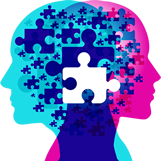
This type of test is specifically designed to determine which type of career will best suit you and your individual personality within the workplace. How you interact with others at work can be different from how you interact with family and friends. This test aims to uncover your character, specifically in the workplace.
High school and college students, along with the career coaches who guide them, can reap enormous benefits from taking a work personality test. These tests can help identify which career paths will best suit both your interests and your specific work personality type. They can help to showcase a wide variety of different career choices that you may not have previously considered and will show which of these hold the most potential.
Work personality career tests are designed to show which communication styles work best for you, whether you work better independently or in a team, and if you’re a natural leader or best in supporting positions.
This type of test can help an individual choose a job they will perform best in and allow an employer to select a candidate that is best suited to the specific position being offered.
2. Desire or Interest | Motivational Tests
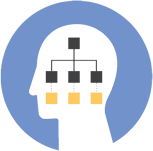
These tests can be beneficial to those searching for the perfect career. They can be useful to students who are selecting which courses to take in post-secondary education and can help others who are looking to switch careers later in life.
Desire or Interest tests, also known as motivational tests, are specifically created to help respondents determine their career desires. They often ask you to choose between different images or pictures, selecting your likes and dislikes. They may ask specific questions used to determine which attributes of specific careers best appeal to you.
They can help to determine if you would prefer a job that lets you work with others, lets you express your creativity, or is more analytical, to name a few.
These tests are best used as a way to organize your likes and dislikes and can help you look into career choices that you otherwise may not have considered.
3. Aptitude Tests
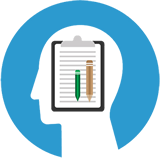
An aptitude test has been specially created to determine a job candidate's specific ability level related to the job being offered. These tests will ask questions about the industry or job position to test the applicant's knowledge of the subject.
Aptitude tests will usually be given during the job interview to weed out unqualified candidates. They are usually in multiple-choice format and can vary widely in test length and the types of questions asked.
The downside to these tests is that they only measure a candidate's specific knowledge of the job. While a solid understanding of any job is crucial, this aptitude alone doesn't ensure that the applicant will be a good fit for the organization as a whole.
4. Personality Tests
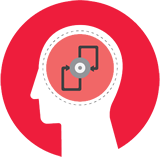
A personality test is a fun way to get to know yourself or someone else better. They are often used during the hiring process to find out more about a person’s thought patterns and preferences, but they can be used for general enjoyment purposes as well.
Personality tests usually use a wide variety of situational questions and ask what the respondent would most likely do if they found themselves in that situation. A personality test can determine if someone is outgoing, compassionate, trustworthy, a problem solver, or impulsive based on their collective answers.
These tests consider a variety of personality traits and show which qualities are your strongest and which are your weakest based on your individual answers.
5. Intelligence | IQ Tests
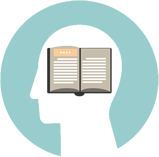
An intelligence or IQ test is designed to measure the innate intellectual ability of a person. Unlike an aptitude test, these tests don't measure your knowledge of a specific subject but instead look at what intellectual potential you hold.
These tests must be administered by a licensed professional and can take several hours to complete. They usually consist of specially designed multiple-choice questions that help determine attributes like non-verbal and logical reasoning and problem-solving skills.
While these types of IQ tests aren't usually performed during the hiring process, they can be beneficial in some high-level careers where employees will be responsible for solving complex problems and coming up with ideas to rectify essential issues.






